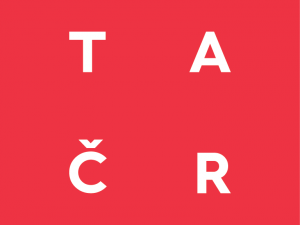| Sub-Project name: | Artificial intelligence, autonomous and cooperative transport systems |
| Work package: | II. Smart Cities and intelligent transport systems |
| ID code: | TN01000024/10 |
| Duration: | 01/2019 – 12/2022 |
| Principal investigator: | doc. RNDr. Barbara Zitová, Ph.D. (UTIA CAS) |
| Participants: | Czech Technical University in Prague (CTU) – Czech Institute of Informatics, Robotics and Cybernetics (CIIRC) – Faculty of Transportation Sciences (FTS) Brno University of Technology (BUT) – Faculty of Electrical Engineering and Communication, Department of Control and Instrumentation (FEEC) – Central European Institute of Technology, RG Cybernetics in Material Science (CEITEC) Institute of Information Theory and Automation of the Czech Academy of Sciences (UTIA CAS) – Department of Image Processing DFC Design s.r.o. TMV SS s.r.o. SKODA AUTO a.s. ZPA Industry a.s. |
| Results: | System Software Stack, R, 2020 System Software Extension, R, 2021+ |
Abstract:
Sub-project will focus on utilization of artificial intelligence methods in the area of transport systems, particularly in simulation systems, automatic navigation, and related assistive tools. Simulation systems will be oriented both towards the car performance and the driver performance. The output will be in the form of the integrated system software stack implementing the developed concepts for simulating systems.
Sub-project is concerned with the following topics:
Performance optimization of autonomous transport systems (CTU CIIRC, ZPA Industry)
The unmanned mobile robots, autonomous cars and alike systems target accomplishing safe and collision-free driving to the given destinations and transportation of payloads. These activities are needed to be performed in an optimized manner as these systems are expected to properly responds to changing constraints through the environment, external requests imposed by external users and/or supervising control system, production planner, etc. To deliver modern approaches of making mobile systems truly autonomous, the localization part will address research and development of novel methods and tools of direct “sense and plan” class applied to car and robot localization using embedded features of the workspace. Whereas the major aim is to suppress dependence of the next generation unmanned systems on the existing infrastructure available through the environment nowadays.
Map generation for autonomous transport systems (BUT CEITEC)
Many assistive tools for driver and transport systems are dependent on such generated datasets. These include, for example, visual driver assistance systems, and, on more general level, traffic monitoring and fault management system and critical situation/disaster management planning. 3D maps are employed in Smart Cities projects, where GIS systems are built in real-time by means of smart sensors, intelligent cars and mobile robots, and then they ensure safety and security in intelligent traffic.
Artificial intelligence in autonomous transport systems (BUT FEEC, SFC Design)
Data analysis and processing are always a cornerstone of any sophisticated system. Specific tasks of self-driving cars (SDC) framework require specific methods and approaches of data analysis and processing just as specific devices and sensors. we focus on analysis and processing of a vast volume data mainly from image-based camera sensors. The main aim of such processing is to interpret sensory information to identify suitable navigation path, recognize relevant signage, detect obstacles, pedestrians etc. The framework called towards-autonomous-vehicles takes into account an approach of complete scene understanding, starting from detection of semantic features, classification of objects, towards behavior analysis and intent prediction.
Testing tools for mobile vehicle performance (FTS CVUT, Škoda Auto)
The fast development of future car systems, including autonomous cars gave rise to the need for new modern testing tools. The common laboratory of FTS CVUT and CIIRC CTU, which works in a direct cooperation with Skoda-Auto, provides an experimental equipment for vehicle systems tests which are targeted on their users (i.e. drivers, road users etc.).
Within this task the research lab will work on:
– the development of the VR systems and testing environment
– the incorporation of developed HW modules of vehicle systems (or their simulation)
– the development and implementation of the test with real users
– the development of customized interactive simulator parts and subsystems with respect to actual experiment needs.
Optimization of the driver’s performance (UTIA CAS, TMV SS)
The aim is to design a platform enabling the capturing of the movements and reactions of the driver. The monitoring of driver behavior and reactions will provide dataset for driver’s skill analyses and the fully controlled environment of the car simulator will enable to collect knowledge later incorporated into visual driver assistance and training systems. The combination of the high end driving simulator, dense camera net and multimodal data fusion methods will provide unique and complete environment for driver’s performance evaluation.
 This project is supported by the Technology Agency of the Czech Republic within the programme National Centres of Competence 1: Support programme for applied research, experimental development and innovation.
This project is supported by the Technology Agency of the Czech Republic within the programme National Centres of Competence 1: Support programme for applied research, experimental development and innovation.

